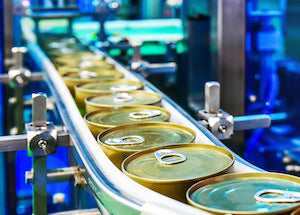
Pump efficiency refers to how effectively a pump can convert one form of energy to another based on the difference between horsepower going into and out of a pump. On the surface, this is calculated by a simple equation:
Water horsepower out of pump = result x 100 = pump efficiency

If pumps were ideal, the horsepower entering the pump would equal the horsepower exiting the pump, producing 100 percent efficiency. Unfortunately, friction, leakage, and other energy losses will always mean mechanical horsepower input will be higher than water horsepower output.
Why Calculate Pump Efficiency?
Calculating pump efficiency helps determine if you have a powerful enough pump for the job. Comparing previous pump efficiency to current efficiency also helps determine if unidentified problems are affecting pump operation.
How to Calculate Water Horsepower Output
To determine pump efficiency you’ll need to convert the capacity and head units into horsepower output. Capacity is the total water output, expressed in gallons per minute. Head is the distance from the source water to the pump’s output, plus any pressure the pump places on the outlet. Head is expressed in feet.
Pump Efficiency Calculation Example
As an example, let’s convert the following flow rate and head readings into horsepower and determine pump efficiency. We’re assuming fresh water with a temperature of 68 Fahrenheit.
- Flow rate: 350 gallons/minute
- Head: 100 feet
The equation used looks like this:
Horsepower = head x capacity x 8.333 x Specific Gravity
33,000 pounds per minute
You’ll notice there are more factors at play here than the capacity and head numbers. The other factors include:
- 8.333: the weight of one US gallon at 68 Fahrenheit
- Specific Gravity (SG): the specific gravity of water at 68 F is 1.
- 33,000 pounds per minute: used to convert foot-pounds/minute to horsepower.
With that in mind, we can calculate the horsepower water horsepower out of the pump as follows:
100 x 350 x 8.333 x 1 = 291,655 = 8.84 horsepower out
33,000 33,000
Now we know the water horsepower out. The manufacturer’s manual should provide us with the mechanical horsepower in. For this example, let's assume 20 horsepower. We’re now ready to calculate pump efficiency:
Water horsepower out of pump = 8.84 = 0.44 x 100 = 44 percent
Mechanical horsepower into pump = 20
Our hypothetical pump, therefore, has a peak efficiency of 44%. Depending on the make, maintenance, and use, industrial pump efficiency range from 10 to more than 90 percent. Regular maintenance and repairs help keep your pumps working at maximum efficiency.
Learn more about our instructor-led pump maintenance and repair course today!





Comments
Sorry, no comments found for this article